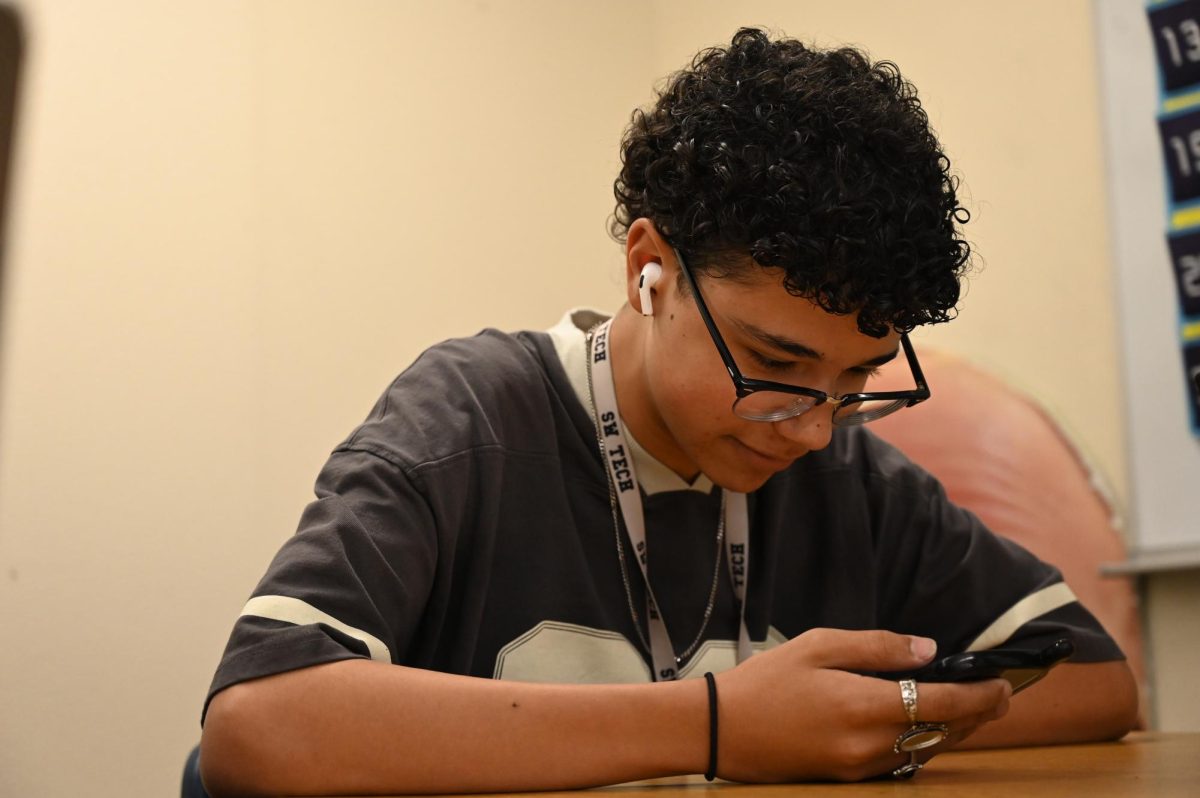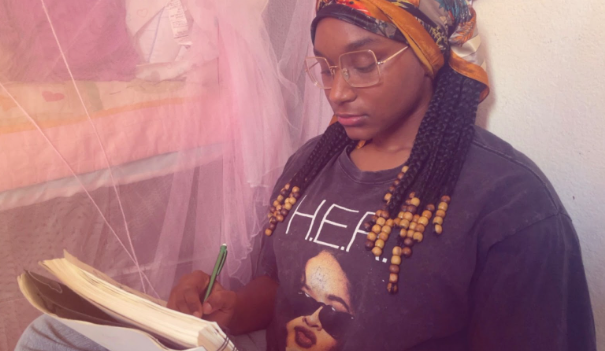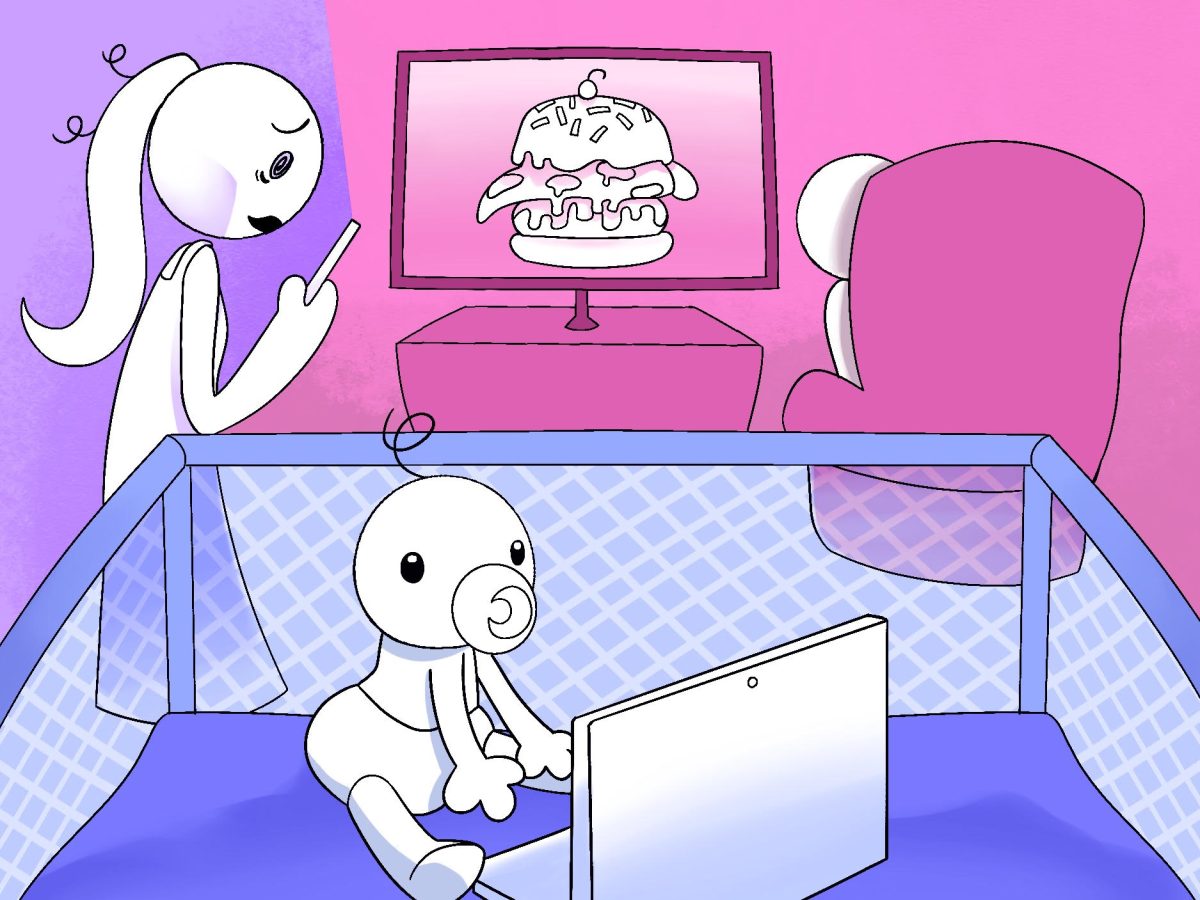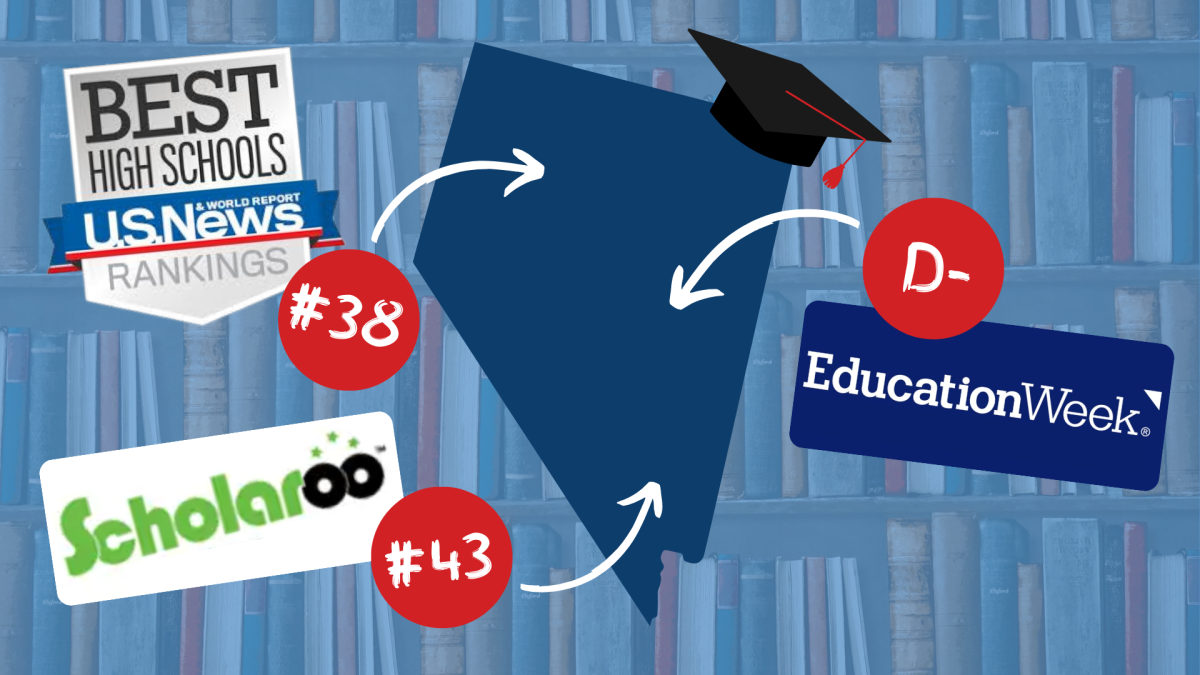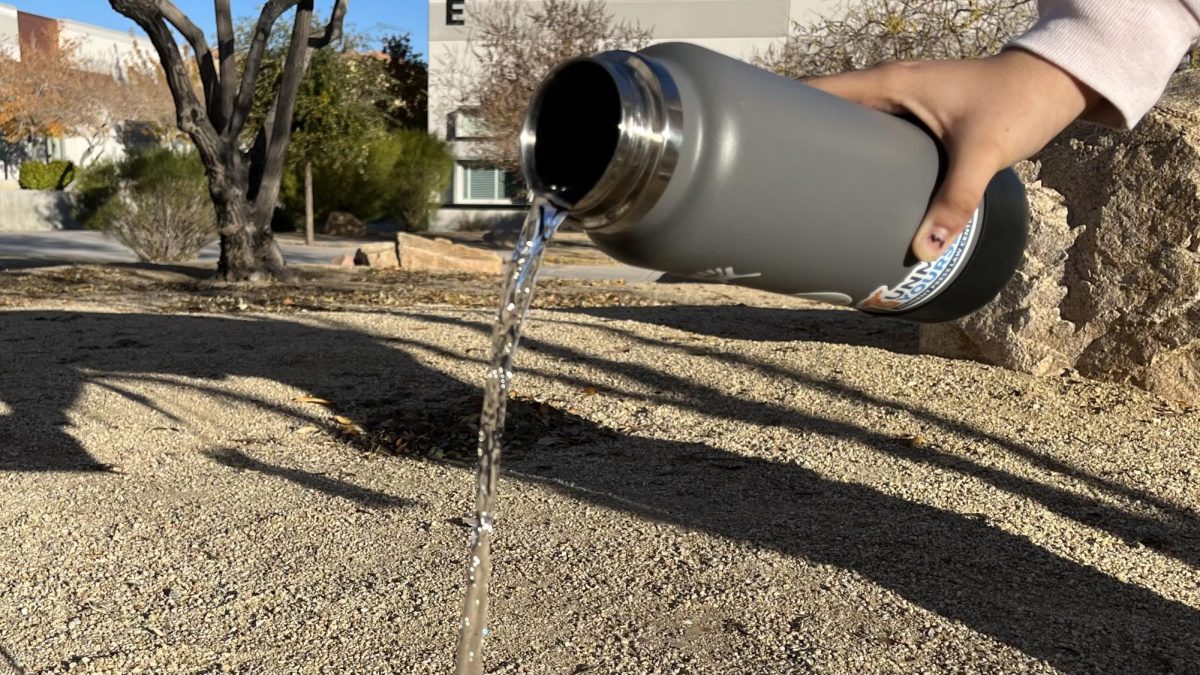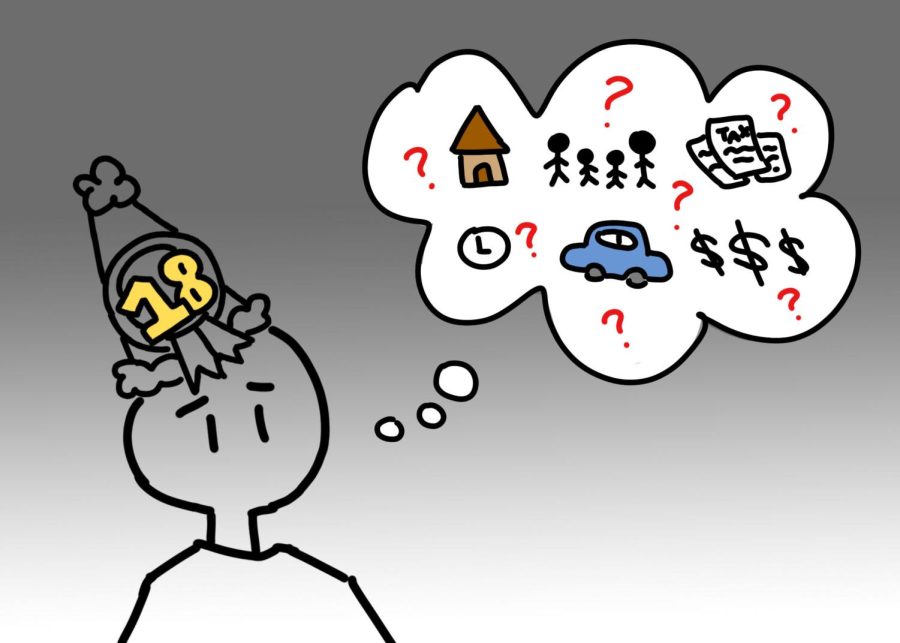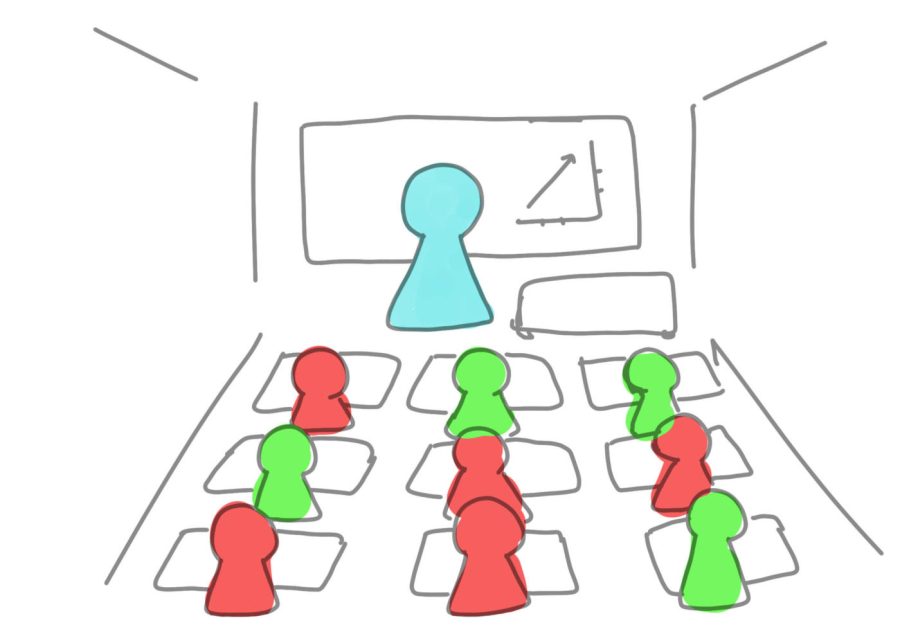“I’m adopted.”
As soon as those words leave senior Jordan Salas’s mouth, he is immediately met with a stunned silence and an expression of pity. Telling people that he is adopted has always been a difficult task because he is immediately offered sympathy. No matter who he tells, it’s always the same response–sorrow and empathy.
“I feel like every normal kid [because] I have the same opportunities as everyone else,” Salas said. “Adoption is not my label as many people don’t know. My mom looks exactly like me and I’m built like my dad so I get my looks from them. I feel like they’re my biological family, blood-related or not.”
Adoption is different for both the family that is adopting and the child that is being adopted. Both sides go through different series of steps and protocols in order to legally change their family tree.
Process of adopting
The process of adoption varies case by case. Whether it’s a closed or open adoption, each parent and child must go through a series of steps before becoming a part of a new family. The adoption process does not always result in a drastic change in location or household; however, for some it may result in unknown surroundings.
For Salas, the process consisted of being placed into Child Haven, staying in an orphanage and bouncing around to different foster homes. After being put back into the system about seven times, his biological mother lost custody and Salas was officially placed for adoption.
While spending time in foster care, Salas would pass the time by focusing on reading, rather than the situation around him. When life seemed tough, he would open a book and focus solely on the words.
[perfectpullquote align=”full” bordertop=”false” cite=”” link=”” color=”” class=”” size=””]”Being in the foster homes was a horrible experience,” Salas said. “I had nothing to focus on except for reading, it was how I passed the time. Sometimes we were locked in rooms, not to be let out.”[/perfectpullquote]In foster care, Salas and his siblings were given the option of picking their new adoptive parents. They were allowed to spend a night with each family and visit their homes. Salas was separated from his siblings when they would spend the night with potential families because they all wouldn’t be able to fit in one home. Fortunately, it did not intensely strain the relationships between them all.
“The first family that took us in was really rich; we got to spend a night with them just to see how they were and see if we wanted them to be our parents,” Salas said. “I decided not to pick them because I felt like there was something more out there, someone with more meaning. The second family is the one that I’m with now, they’re the ones that I felt a loving relationship with.”
Eventually, Salas was adopted with two of his siblings to his current family and was fortunate enough to have his sister be adopted by her biological father. Due to the easy access of communication, the siblings keep in touch.
“She [sister] was so young, that I am grateful since she never had to understand the fact that she lost her biological family,” Salas said.
At first, it was difficult for Salas to be separated from his siblings, but over time, it became easier to endure the distance that separated them. Currently, he has a strong bond with the siblings he lives with at the moment. Not only did being adopted not effect his relationships with his siblings, but it additionally helped shape the man who he is today.
“It [the situation] shows me as a more easy approaching man that is easy-going and is happy,” Salas said.
Salas decided to cut off all contact with one of his relatives, his biological mother, unlike sophomore Jaylin Hoku Grady who still has contact with her mom. While Salas’ adoption consisted of finding and picking a new family, sophomore Jaylin Hoku Grady was fortunate enough to be adopted by her relatives.
“For as long as I could remember, my grandma was consistently taking on the role of a mother more than a grandma to me and my siblings as well,” Grady said. “I lived with her and would occasionally visit my mommy when my grandma needed her to babysit me while she was at work.”
Due to the situation Grady was in, she viewed the entire adoption process differently than most do. She knew that the unconditional love she receives from her grandparents would never change, no matter the shift in legal documents.
“Adoption to me meant that my last name would change, legally my parents would as well, but one thing I knew wouldn’t change was the love my grandparents felt and expressed for me,” Grady said.
While Grady and Salas were adopted as preteens, Digital Game teacher Terry Lively was adopted as a baby. At the age of eight, he found out that he was adopted. Although the fact came as a shock, it didn’t change the fact that he had lived a good childhood.
“Finding out that I was adopted was an interesting story, my brother is adopted as well and at the time our parents hadn’t told us that we were adopted,” Lively said. “One day we got into a fight with my older sister and she said ‘Oh yeah? Well you’re adopted,’ we were instantly like ‘No we’re not,’ and my parents at that point in time had to sit down and talk with us. It wasn’t a traumatic experience but it was a bit of a shock.”
Families who opted for adoption
Rather than having their own biological children, Respiratory Therapy teacher Vicki Smith and her husband pushed for adoption. Although they originally planned to only adopt one child, the couple adopted three children: two of her children were of Swedish and Norwegian descent and adopted in the states, while the third child was adopted from Korea.
Towards the end of the Vietnam War in 1975, there was a plea for people to adopt Vietnamese orphans. Operation Babylift was then implemented which allowed for a mass amount of Vietnamese babies to be placed into the U.S. and set up for adoption.
“We applied for one of the 150 babies that they were moving out,” Smith said. “We didn’t get one but we were bound and determined to adopt a minority child across racial lines and from another country that didn’t have a future. We researched and researched until my friend found us a little boy here in the states.”
Although Smith was not able to adopt a child through Operation Babylift, she was able to adopt a child from Korea. When her baby arrived at the airport, Smith was in Kansas with her father who was ill at the time.
“It was a weird arrival; the agency was supposed to notify us when she was arriving so that we can pick her up but they notified the wrong agency,” Smith said. “So when we got the information that she was in Seattle sitting at the airport I had to hop on a plane and leave my dad. My husband had to pick her up and didn’t know what to do with her.”
Unlike Smith who adopted three children at separate times, senior Moira Johnson’s parents decided to adopt seven children all at once. While this can be seen as a challenge, Johnson’s parents were more than ready for providing unconditional love for the children. After hearing that her cousin’s children were removed from their home and placed in a foster care, Johnson’s family decided to adopt them all so that they wouldn’t be split up.
“Sometimes I forget that not everyone has such a unique and large family,” Johnson said. “For example, things like going to the airport are really funny. People will just stare at my family in awe of how many of us there are.”
Impact of adopting
Growing up, Salas did not consider his adoption as a defining label, it was simply something that was part of his life. Without the impact of his adoption, he could’ve gone down a different path and as a result could’ve became a completely different person.
“When I was first adopted my family gave me full trust and when I’m with them I feel like it’s an actual home,” Salas said. “I felt like I was part of the family, I was given every opportunity as any other kid. I now have two brothers, I love them and they love me.”
During his time in foster homes, Salas would read to pass time. This journey had many hardships that he had to endure before he was able to get his “happy ending.”
[perfectpullquote align=”left” cite=”” link=”” color=”#CF0E23″ class=”” size=””]”It was hard because I had no one to love or care for me,” Salas said “I had to become an adult at a young age and it grew harder to act my age.”[/perfectpullquote]On the other side, Grady did not have to experience the constant challenge of foster homes, but she could not escape the feeling of being “different.” All the expressions of pity and millions of questions directed at her from close friends and strangers. The feeling of being unalike everyone else was constant.
“The little moments are the ones that impact me the hardest, making me feel insecure and different compared to my friends,” Grady said. “Friends my age usually have parents that are still relatively young unlike me, so stuff like help doing their hair, going out to the strip or out of state on vacation makes me feel so lonely and ‘different.’ I wanna do those things with my parents too,” Grady said.
When it comes to being adopted, the same question always arises, “Do you want to meet your biological parents?” For many, the answer varies, but for Lively, the desire to meet his biological parents wasn’t deep.
“I thought about meeting my biological parents before and my brother and I talked about it and we really didn’t want to hurt our parents’ feelings by looking for our biological parents,” Lively said. “I don’t think they would have a problem with it but we always kinda held back because we didn’t want to hurt their feelings.”
Growing up as a child, Lively considers his childhood as enjoyable with memories he looks back on fondly, which convinced him to view finding his biological parents as unnecessary. Lively’s decision remains the same and he never did decide to meet his biological parents, nor is he planning on it at the moment.
As for Jordan, he does not want any contact with his biological mother. After the long process of foster care and adoption, Salas is happy to be done with it all and is looking forward to starting fresh. With thoughts towards the future, Salas is ready for his new and upcoming life.
“I remember the happiness I felt when it was finally over,” Salas said. “I could start fresh and live a new life, I was happy to just be done with everything. I felt like I was a new Jordan. I decided to change who I was, so I just started doing things my way, and I can genuinely say that I am proud to be adopted.”
Future plans
With plans to become a police officer in the future, Salas is getting ready to graduate high school and go onto college. After turning 18, the realization that adulthood is near prompts him to start thinking about his future.
“I would love to adopt kids when I’m older because I know what they’re experiencing first hand,” Salas said. “If I were to adopt kids I would treat them as if they were my blood-related child. All it takes is love to pick a child.”
On the other hand, Grady plans to follow in her mother’s footsteps to be a model. Currently in the fashion program, she intends to go in the field for a lifelong career.
“When I was young, my adoptive parents told me that my mom was a model,” Grady said. “[People] usually aspire to be like our parents, so I wanted to be like her.”
In regards to having kids in the future, Grady hopes to adopt children if life gives her a chance–whether it’s in a way to help her family or friends.
[perfectpullquote align=”left” cite=”” link=”” color=”#CF0E23″ class=”” size=””]”I want to [adopt] because I want a kid to feel wanted and a place to call their home,” Grady said. “I know the feeling of loneliness and I don’t want another child to feel that way.”[/perfectpullquote]Adoptive parents contribute a tremendous amount to their children’s lives. from their influence to their motivation, they have a major impact on their children. For Salas, that is exactly what happened.
“My mom has been a huge influence in my life, she’s shown me how to work hard and not give up in certain situations,” Salas said. “She has given me a chance to express how I feel and has given me the life I need.”
Although the adoption process was tough for Salas, the joy of finding a family was more than worth it. Without the challenges he has faced, he would not be here today.
“I think that I would be in a very tough situation had I not been adopted because I just turned 18,” Salas said. “I would no longer be eligible for the foster care system so if everything that happened would’ve been different I would probably be homeless. I would live on the streets with nothing to call my own.”
[poller_master poll_id=”420″ extra_class=””]
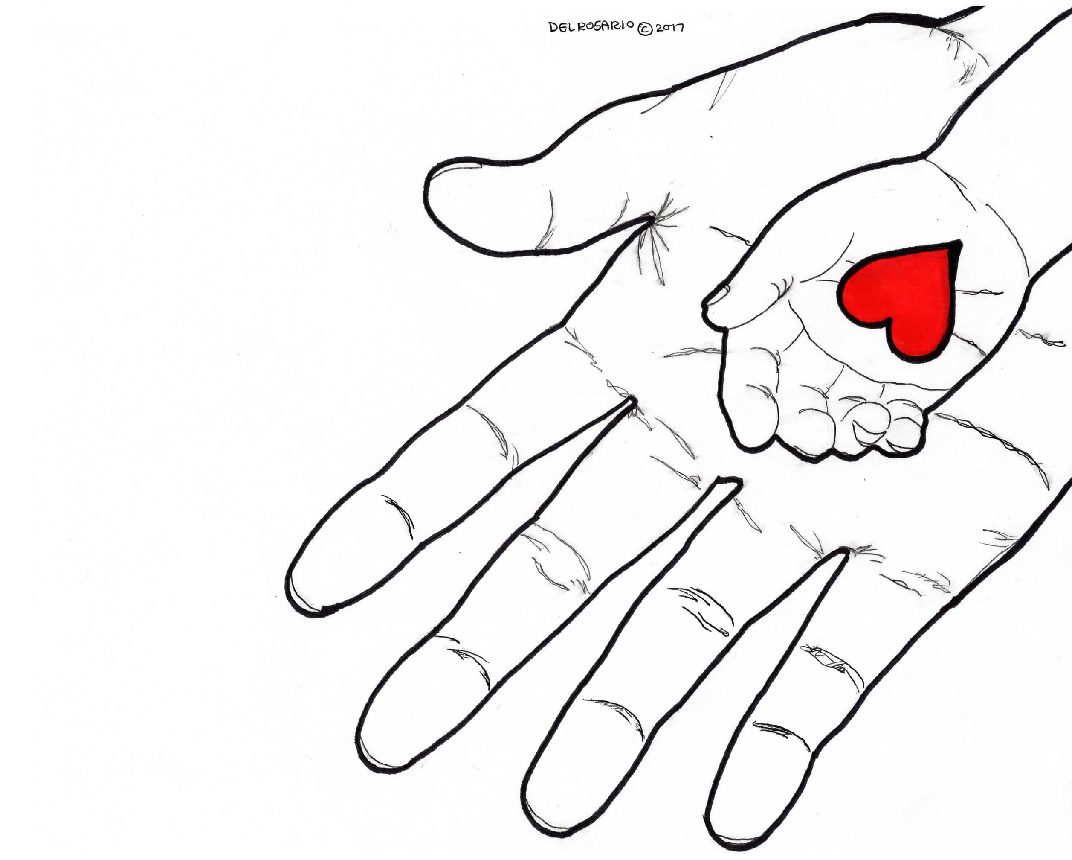

![Working in the Student Success Office, Attendance Secretary Lordis Depiazza inputs a student’s absence excuse note. Students are required to bring an excuse note to the attendance office within three days of any absence. “Reminding students that being in school is important because it reflects towards your grades and being able to do any activities with the school,” Depiazza said. “[It] seems to get the students' attention about wanting to be in school.”](https://southwestshadow.com/wp-content/uploads/2025/10/IMG_8313-1200x800.jpg)

![Squaring up to a practice dummy, sophomore Cypher Andres prepares to throw a punch. Dummies are regularly used to help him prepare certain hits to take his opponents down. “[Boxing dummies help me practice] because it’s basically a model of the body,” Andres said. “It helps with accuracy, such as pressure points behind the ear, and a clean liver shot can end the fight.”](https://southwestshadow.com/wp-content/uploads/2025/10/IMG_5728-e1759850486200-1200x864.jpg)

![Arranging the fabric on the floor for a new project, senior Sapphyre-Ann Leung plans out her attire for the next deadline. With the recent closures, students now had limited resources and less margin for error with the fabric and materials they had in stock while trying to reach strict deadlines. “Joann’s had a lot of high-end fabric for our fashion competitions,” Leung said. “We couldn’t just buy ten yards of fabric from Hobby Lobby or Walmart. Since [Joann Fabrics] is no longer open, we have to buy items online, which is way more expensive.”](https://southwestshadow.com/wp-content/uploads/2025/10/IMG_0038-1200x800.jpg)
![Swaying and preparing to toss the tennis ball, Dylan Grove practices serving. Grove had been training in preparation for her upcoming matches against Chaparral and Doral Red Rock. “[Both teams are] both very tough opponents, but I am ready for whatever gets thrown my way,” Grove said.](https://southwestshadow.com/wp-content/uploads/2025/10/image-1200x900.png)

